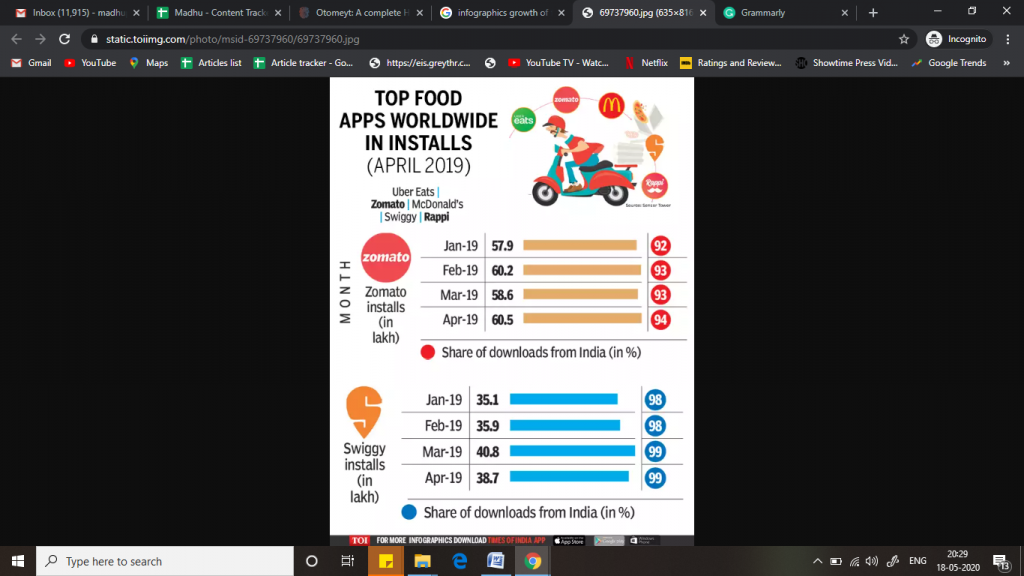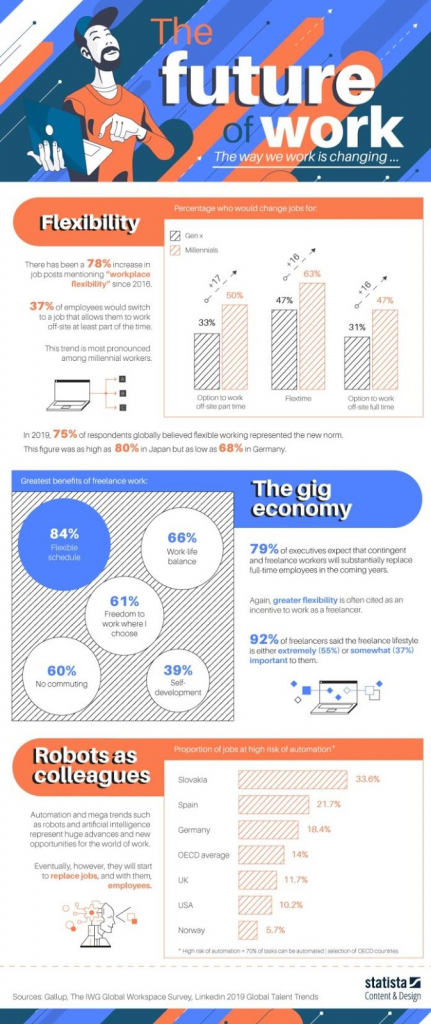The Covid-19 pandemic has resulted in the biggest lockdown of human history. Most importantly, the last few months and the aftermath have put the global economy on a tailspin.
But would you believe me if I said that these dark hours could open up a window of new opportunities? A new opportunity to rethink the CHRO strategy.

(Source: Statista)
We need to assume at this point that life and work are not going back to normal, at least not anytime soon. So what do you do?
I can recall J.F Kennedy, who once said,
“When written in Chinese, the word ‘crisis’ is composed of two characters. One represents danger, and the other represents opportunity.”
It is for those with a perspective to find the opportunities within the danger. And that is what the CHRO strategy needs to be now and in the near future.
While many businesses have shut shops, never to return, let’s not forget the dark horses of industries. These are the businesses that will reform, reinvent, and restructure themselves. Businesses that are more scalable, agile, and incorporate automation will jump out of this with flying colors!
My observations on rethinking CHRO strategy
Whether you are a big player in the market or the small fish in the pond of the healthcare business, this is your time to shine. With more focus on immunity and wellness, these are the ones to start scaling.
Food delivery businesses are the saviors of today. While restaurants may shut down, cloud kitchen and food aggregators will continue to thrive.

(Source: Indiatimes.com)
The academic career of students around the world is in upheaval. Online learning and educational training, which were once very niche, are now becoming the norm.

(Source: Statista)
Businesses that relied on cloud computing will continue and grow rapidly. SAS companies are doing more business than ever.
Online media channels (video and music streaming, movies on demand, and more) and social media platforms are the only source of entertainment and information and have skyrocketed in their user acquisition.

(Source: Technavio)
With lesser social interaction and physical transactions, a cashless market is paving the way for more digital payments, and we can clearly see this industry space growing.
What does all this mean for the HRs?
The writing is on the wall. Every business, small or large, will now need further automation and integrate artificial intelligence to enhance resilience. And resilience is not just in terms of how you manage your operations but also your human resources. Because automation is going to be the keyword for the future, it doesn’t mean we will stop needing people.
In fact, the industries that I just listed above will generate more employment, at least in economies that are majorly service driven. For instance, online publications are hot these days, but who generates the content if not writers? Cloud kitchen may be the need of the hour, but someone still needs to cook, pack, and deliver. Software services that aid remote working are seeing businesses like never before, but what good is it without an efficient/round-the-clock tech support?

What we certainly need to do is use these technologies to reduce manual intervention and be more hands-off wherever it is possible. Having a strong workforce is essential, especially in these times, no matter which of the dark horse players you are.
But we need to rely less on face-to-face human interaction to reduce transmission risk. Enterprises need the best talent, but they cannot be hired in conventional ways. The new economy and new skills call for newer ways of hiring. In such a scenario, what’s better than harnessing the power of automation to onboard, manage, and streamline your workforce?
As a leader, you should also be ready to alter your CHRO strategy, either gradually or radically. And depending on the structure of your workforce, use and incorporate new information and forgo the traditional ways. This is a time to be agile and future-ready!
The world (and life) as we know it, is changing, almost forever. And what’s better than to confront this biggest global crisis and turn it around in our favor? This is the time to reevaluate our approaches to how we work and what we need and finally do things that we have only been planning and thinking about.
- Rethinking CHRO Strategy: How to turn around the pandemic for dark horse industries? - June 10, 2020
- Working in the Six-Feet Office - June 9, 2020

